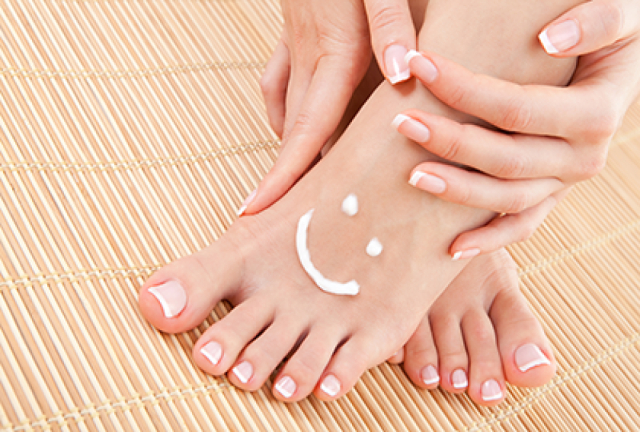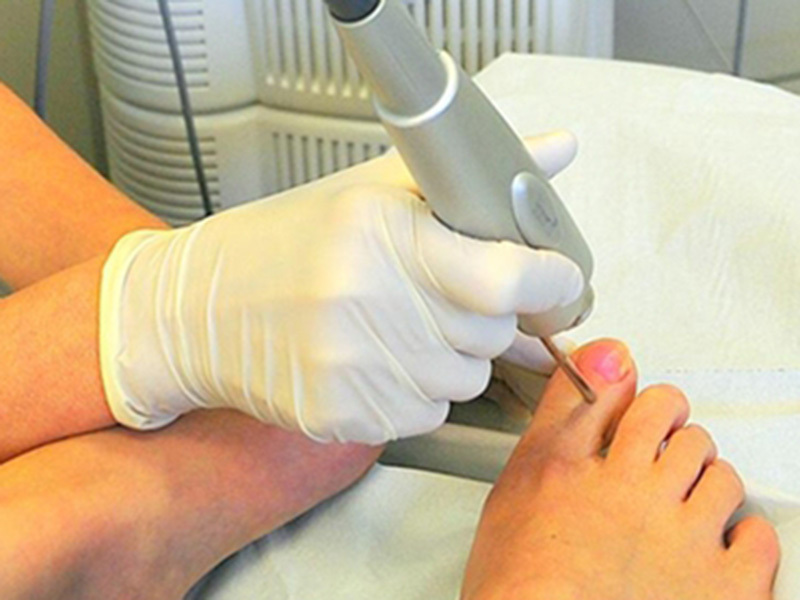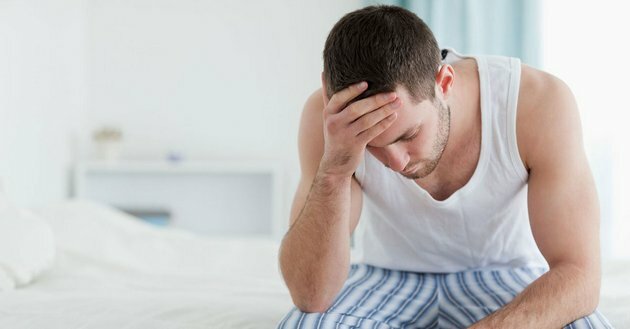Why legs itch below the knees: reasons, what to do, treatment
There are many reasons that could explain why the legs are constantly itching below the knees. Itchy skin is a specific manifestation of the pathological state of the body. An unpleasant symptom can appear for each of us, and at any age. Manifestations of itching often occur as a result of impaired microcirculation of blood in the lower extremities.
Content
- Common reasons why legs itch below the knees
- Other, more serious causes of itching below the knees
- Which doctor should I go to?
- Diagnostics
- What to do if legs itch below the knees?
- Drug treatment
- How to remove itching with folk remedies?
- Other therapies
- Possible consequences and complications
Common reasons why legs itch below the knees
The problem can be completely harmless, the causes of which can be easily eliminated:
- dry skin;
- allergy to synthetics (from tights, leggings, stockings);
- itching from sweets;
- violations of the rules of personal hygiene;
- hypothermia in the cold seasons (tingling is observed after the street from the cold in autumn and winter after frost, goose bumps are formed);
- depilation and hair removal - in women after shaving;
- from nerves.
After correcting the described problems, itching disappears by itself and does not require medication.
Other, more serious causes of itching below the knees
- Dermatitis, allergic reaction. Immune system irritants: food, drugs, pollen, dust, cosmetics, animal protein. Skin irritation after a shower, which manifests itself in rashes, up to red spots, is also an allergy. If the skin is crusty, it is a sign of atopic dermatitis.
- Fungal diseases. If your feet itch very much, this may indicate the presence of a fungus. Additional symptoms: hyperemia of the skin, burning, changes in the shape and color of the nail plates. From unbearable itching, scratches to blood, wet wounds, blisters, abrasions appear.
- Lichen. Symptoms such as redness of the skin on the legs, flaking, peeling, discoloration, indicate the presence of lichen.
- Hormonal imbalance. Severe itching in the lower leg, which spreads both front and back, indicates an excess of progesterone. Red dots appear, which subsequently dry out, the skin also becomes dry, flakes, cracks, and causes itching.
- If itching occurs in one place, for example, spreads to the knee joint, only the left knee hurts, this is an inflammatory process, it is possible arthritis.
- Diabetes. Diabetes leads to an inflammatory process, which can subsequently cause tissue necrosis below the knees.
- If there is no rash, but the leg is swollen and itches, this is a clear sign of the initial stage. varicose veins.
- If men have itching in the lower extremities, it is necessary to carefully examine the legs, especially if they are covered with thick hairs. Itching can be caused by carpet fleasthat migrate perfectly from one apartment to another. The bite sites become inflamed, redden. Brushing can infect the bitten area.
- Severe itching of the legs in the area of the feet and lower legs, if carried out long course of treatment with glucocorticosteroid hormones. During treatment, addiction develops, as the skin gets used to the active substance that is part of the drug.
Read also:Acne on the chin in women: what to do, how to get rid of them
Other reasons:
- psychological and mental disorders;
- hyperkeratosis of the skin;
- hepatitis;
- hepatic and renal failure;
- neurodermatitis;
- osteochondrosis;
- lymphogranulomatosis.
Which doctor should I go to?
If you have itching from the feet to the knees, you should contact:
- pediatrician - if the child has itching for no apparent reason;
- therapist for primary diagnosis;
- allergist, in the presence of severe allergic reactions;
- dermatologist - if there is a suspicion of skin disease;
- psychotherapist - to correct the emotional sphere;
- vascular surgeon - in the presence of varicose veins;
- gastroenterologist - to exclude stomach diseases.
If such reactions occur, especially during pregnancy, it is recommended to visit a therapist, possibly during examination, he will refer to a narrower specialist.
Diagnostics
As a result of instrumental and laboratory studies, it is possible to obtain information about the state of human health, about all the processes occurring in his body.
In accordance with the clinical situation, it is necessary to pass the following tests:
- allergy tests;
- urine analysis according to Zimnitsky and Nichiporenko;
- general analysis of blood and urine;
- scraping;
- blood biochemistry;
- conduct an ultrasound of the kidneys and liver.
What to do if legs itch below the knees?

Based on the analyzes received, you need to decide which doctor to turn to for help: a dermatologist, endocrinologist, gastroenterologist, allergist, vascular surgeon or a neurologist.
Drug treatment
Medicines should be prescribed by a doctor in accordance with the detected pathology.
Medicines:
- Antihistamines: Suprastin, Diphenhydramine, Tavegil, Loratadin. Effective drugs for relieving itching in case of an allergic reaction. Relief occurs within 30 minutes after taking the drug. The drugs work for 6 hours.
- Antioxidants help to normalize blood microcirculation. These are moisturizers with vitamins A, E, C, K, provitamin A, with various spices: Valo essence Nordic-C Glow Boost, Green Tea EGCG Concentrate Serum, My Payot Overnight Mask Sleeping Pack.
- Sedatives: valerian, bromine. They help relieve neurotic disorders.
- Varicose veins are treated with venotonics - medicines that improve the condition of blood vessels. Ointments and tablets are effective when taken together with venotonics. Aspirin also helps to improve the condition.
- Hepatoprotectors are prescribed for pathological processes occurring in the liver. Medicines protect the organ from further destruction and help restore liver function.
- Depending on the type of diabetes mellitus, the doctor prescribes insulin. A person's personality also influences the choice of drugs that lower sugar.
- Treat dermatitis need in a complex. To obtain an effective result, you need creams, antihistamines and anti-inflammatory drugs, ointments. Help relieve itching antiallergic ointments (Ftorocort, Elokom) for external use.
- Taking tranquilizers and antidepressants is prescribed when psychogenic itching occurs (prescribed only by a doctor).
Read also:Symptoms and treatment of granuloma annulus
To relieve symptoms and to return the patient to normal life, in addition to taking medications, you will need to follow a diet, undergo physiotherapy courses, and psychocorrection.
How to remove itching with folk remedies?
The use of non-traditional methods of treatment is possible with the permission of the attending physician, since many plants can provoke allergies.
Traditional medicine recipes:
- Apple vinegar. To relieve itching, you need to moisten a cotton pad in vinegar and wipe the ankle, ankles and calves with it. It is important to carry out the procedures before going to bed to avoid scratching your legs at night.
- Propolis. Chilled tincture quickly relieves itching. It is necessary to moisten a cotton pad in propolis and wipe problem areas from knee to foot.
- Oat paste. Oatmeal contains antioxidants that can have a soothing effect on the skin. Preparation of the paste: grind the flakes, mix them with water until a viscous consistency is obtained. The resulting paste is applied to the skin and left for 20 minutes, then washed off with warm water.
- Fresh mint. The presence of anesthetic and anti-inflammatory components helps relieve itching. It is necessary to apply a compress from a decoction of peppermint to sore spots.
- Moisturizers. If your feet itch terribly from the inside, below in the area of the ankle, heel, and also dry, it is necessary to restore the water balance by preparing a moisturizing avocado mask with the addition of cream and honey. Put 1 tablespoon in a blender. honey, 3 tbsp. cream, 4th part of avocado. Mix all ingredients. Lubricate the damaged areas with the resulting cream 3 times a day: in the morning, at lunchtime and in the evening.
Treatment will be more effective if you follow the daily regimen, eat right, and wear natural clothing.
Other therapies
Physiotherapy will be helpful for psoriasis, neuropathy, which appeared on the background of diabetes mellitus, varicose veins. The doctor can prescribe UHF therapy, phonophoresis, reflexology, electrophoresis.
Techniques are prohibited in the presence of tumors, pathologies of the cardiovascular system, skin diseases. Kidney disease is also a contraindication to physiotherapy.
Possible consequences and complications
If you postpone the diagnosis of the reason why the legs itch, swell, peel off, you can start the disease and get as a result:
- trophic ulcer;
- infection and spread throughout the body;
- gangrene if the patient has diabetes mellitus.
Read also:Internal and external causes of the development of furunculosis, effective treatment
If itching occurs as a result of an allergic reaction, bronchospasm may occur and anaphylactic shock.
If itching occurs, it is important to endure the moment and not scratch, otherwise skin inflammation will appear, sores, scabs on the legs, scars, scars, which will be very difficult to get rid of, plus you can add infection. Self-medication should not be carried out, since an incorrectly selected drug can provoke a number of new symptoms.



